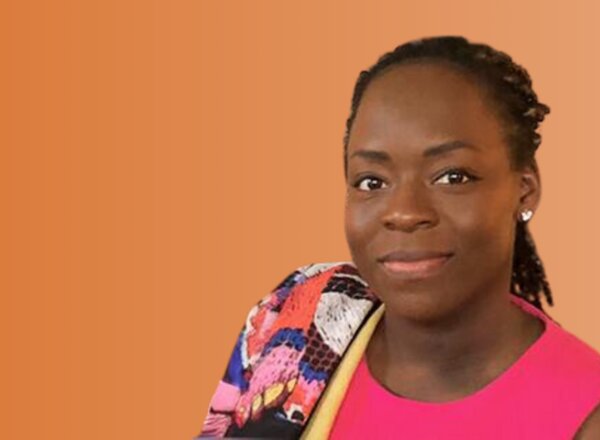4 October 2023
Bernadette Adeyileka-Tracz is the Executive Director for Diabetes Africa and in this blog she celebrates the dedicated professionals she works with. We take a look at how the organisation is striving to reduce inequalities for people living with diabetes across the UK and find out more about their upcoming UK forum.
What is your role with Diabetes Africa?
I am the Executive Director of Diabetes Africa, a non-profit organisation. We help individuals, health and social care professionals, researchers, and organisations communicate and make a bigger impact fighting diabetes with people of Black, African, and Caribbean origin, everywhere in the world.
With our network of healthcare professionals and advocates, we provide support to bring ideas to life. My role is to ensure that we improve outcomes for the community, deliver the highest quality of work, and raise the profile of the great people we work with, many of whom are unsung heroes.
What’s the challenge faced by people of Black heritage living with diabetes?
People of Black heritage living in the UK can face thorny challenges in all aspects of their lives, which tend to impact their diabetes outcomes in many ways. There are gaps in personalised care, access to diabetes technologies, awareness of the disease, and our understanding of the physiology underpinning certain complications. Also, we shouldn’t underestimate the positive impact that seeing people living with diabetes and role models thrive can have within the communities. And reversely, not seeing these champions can hamper efforts to improve outcomes. That’s before we mention the larger issue of discrimination, which is painful to raise but must also be addressed.
Diabetes isn’t a single or simple challenge, there isn’t a single or simple solution. So far, the problem has not been solved: in the UK, people from Black African, and Black Caribbean backgrounds are two to four times more likely to develop Type 2 diabetes, frequently at a younger age and with a lower BMI than people of White European backgrounds.
How does Diabetes Africa approach this challenge?
We’ve started by bringing an ecosystem of stakeholders and champions together. We’ve been raising the profile of healthcare professionals and experts who are working specifically with Black, African, and Caribbean communities, and encouraged people to think outside the box. An important aspect of our work is also to provide a safe space for people living with diabetes to learn and exchangeconnect. For the past three years, we’ve been running virtual events that mix health information and lived experience for people of Black, African and Caribbean communities.
What can attendees expect at your future UK Forum, which is being held in partnership with KHP Diabetes, Endocrinology & Obesity?
This is the first time since the end of the pandemic that we’re offering a forum for UK health and social care professionals, decision-makers, professionals and researchers to come together and exchange on solutions to overcome diabetes inequalities in UK Black, African and Caribbean communities.
 At the Overcoming Diabetes Inequalities event, people can expect to join a hive of passionate and remarkable professionals who have all been moving mountains to reduce inequalities and improve diabetes care across the country. There will be a big focus on ‘how to’ and ‘what works’, and people can expect enlightening conversations with concrete suggestions to take back home, as well as meaningful new partnerships.
At the Overcoming Diabetes Inequalities event, people can expect to join a hive of passionate and remarkable professionals who have all been moving mountains to reduce inequalities and improve diabetes care across the country. There will be a big focus on ‘how to’ and ‘what works’, and people can expect enlightening conversations with concrete suggestions to take back home, as well as meaningful new partnerships.





